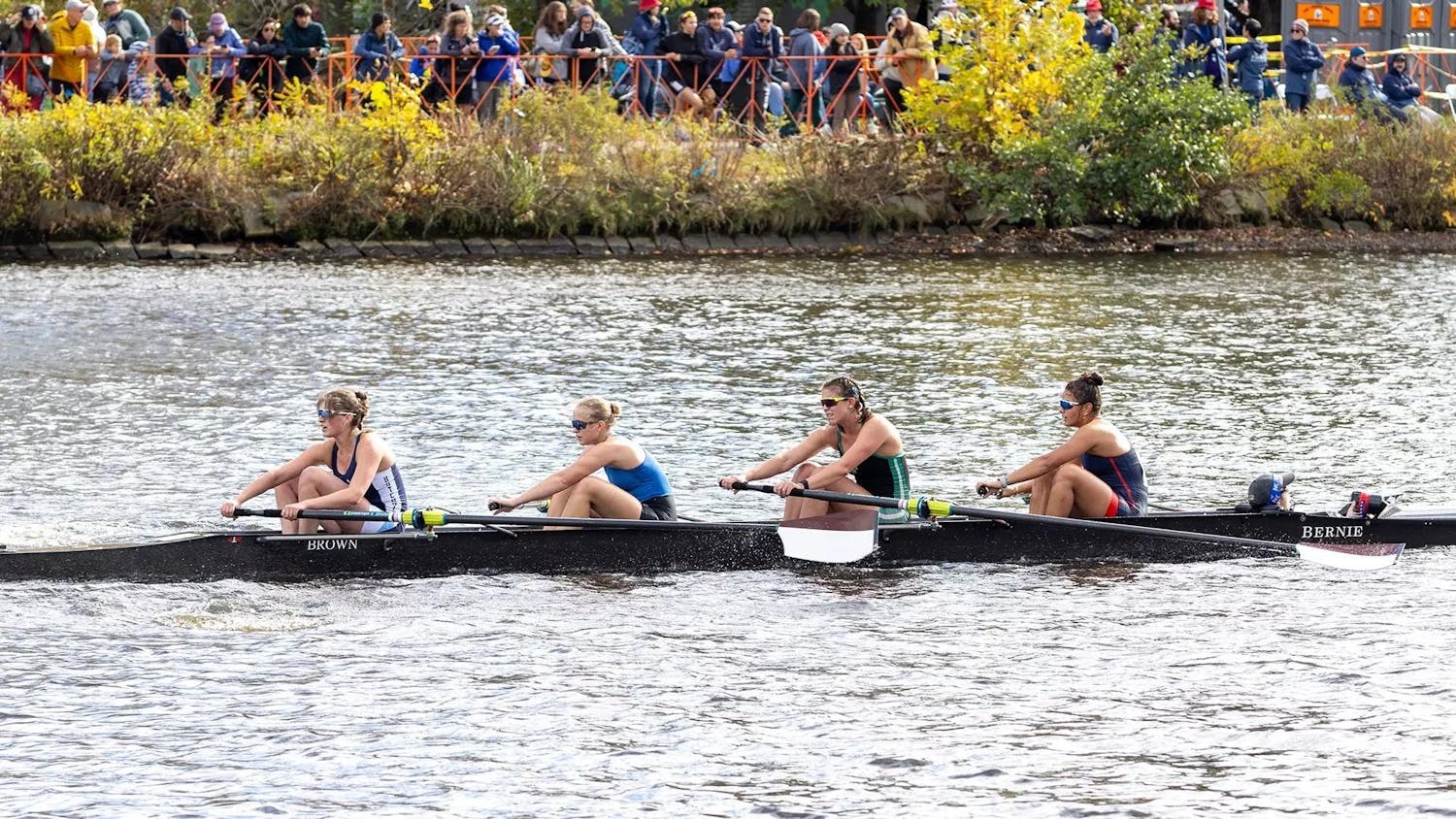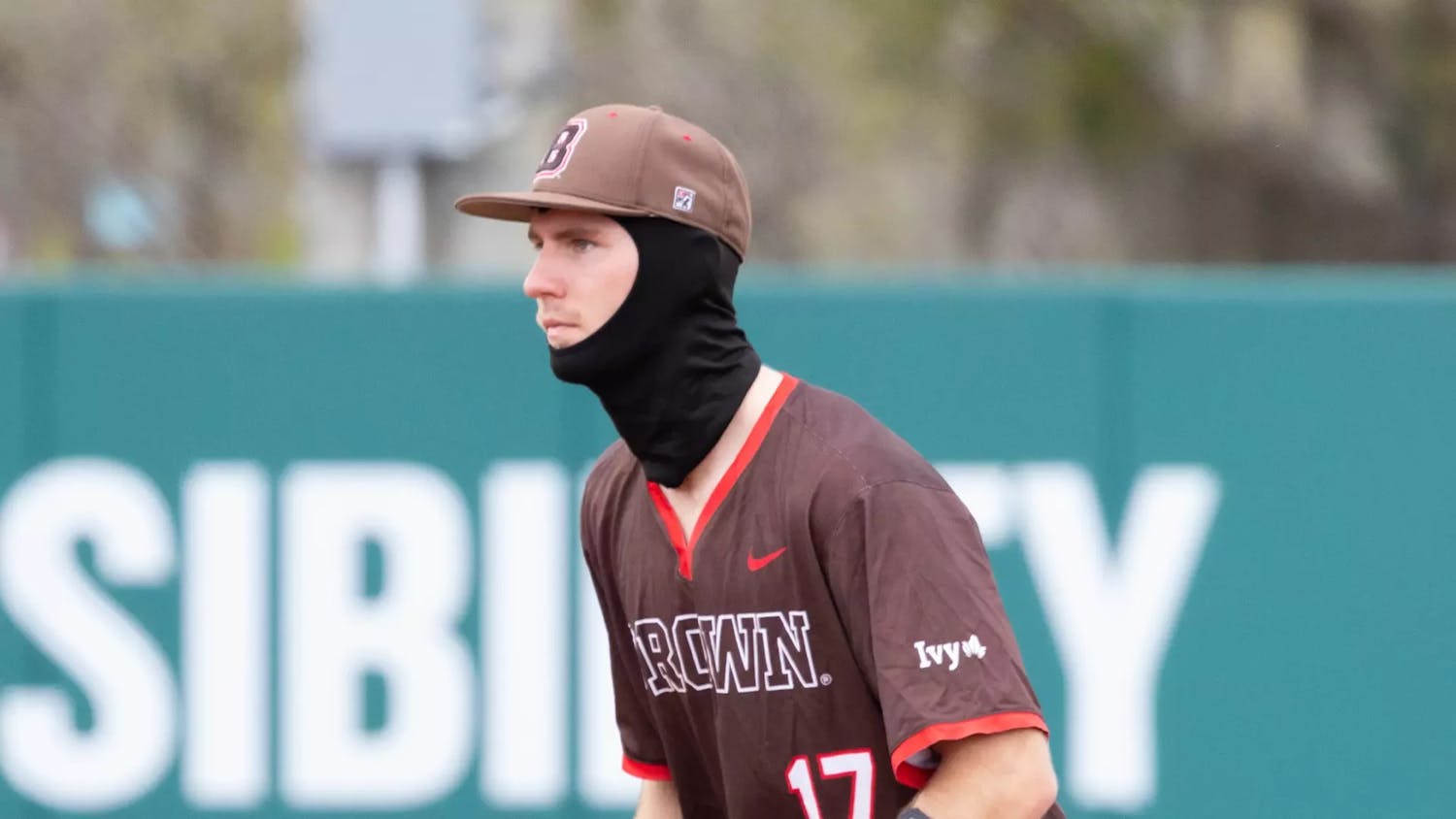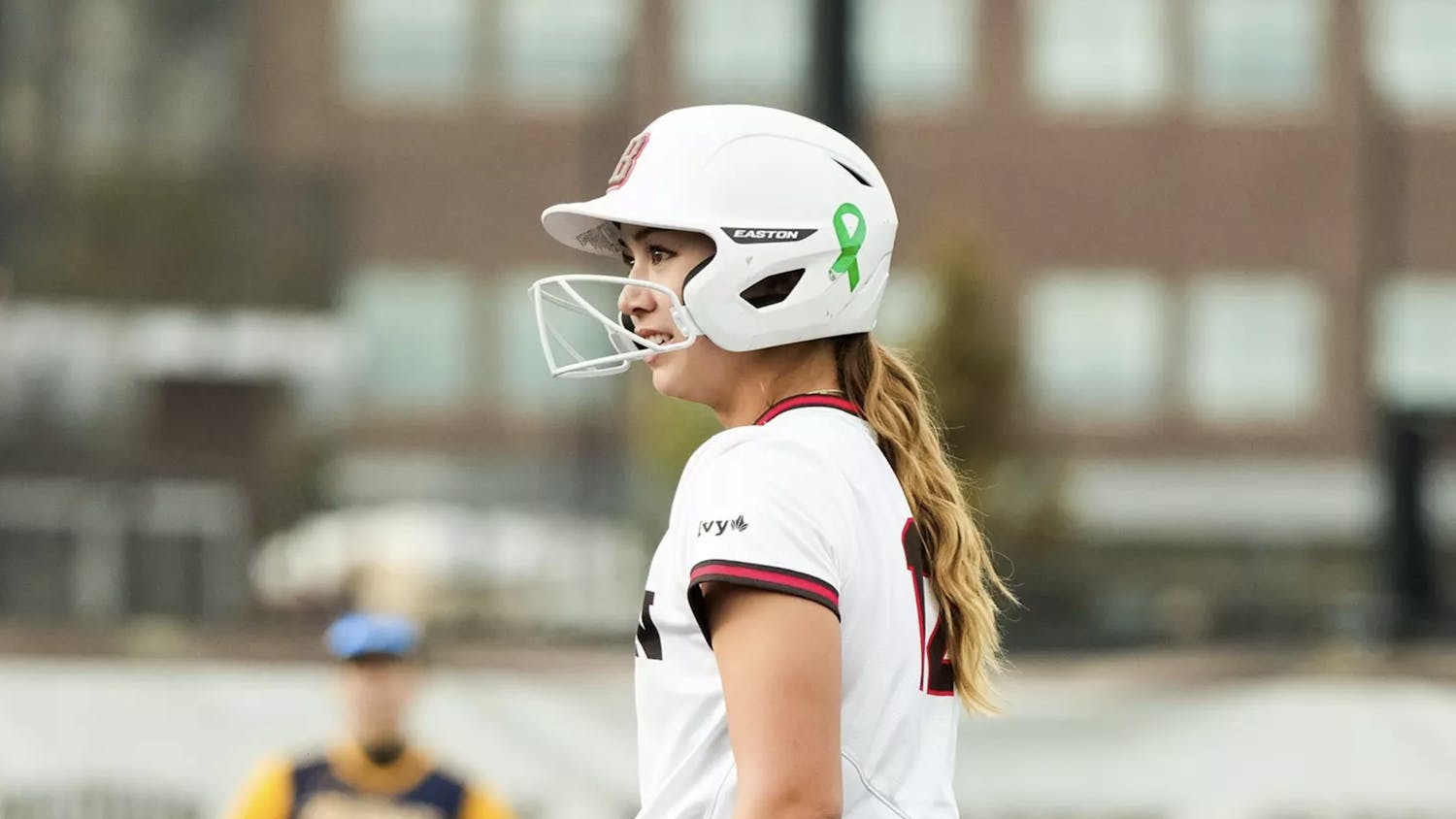Alex Tounkara '11.5 and Stephen Peyton '12, former football players for Bruno, brought their love for the game overseas, continuing to play football for teams across the Atlantic after graduating. Both played professional football in Europe earlier this year, with Tounkara competing in the German Football League and Peyton in Vaahteraliiga, also known as the Maple League, of Finland.
Each player took a different path overseas. Tounkara said he was invited to join the Buffalo Bills' Rookie Mini-Camp in May, but the Belgium native was not allowed to attend because his student visa expired. He returned home to Belgium and was contacted by the New Yorker Lions, a Division I team of the GFL. When the Lions contacted Tounkara in June, midway through their most recent season, Tounkara said they hoped he could give their struggling offense a hand.
Peyton, on the other hand, never had the opportunity to join a National Football League squad. He was contacted six games into the 10-game Maple League season by the Division I Helsinki Roosters after an injury to one of their players. Less than a week later, he had signed a contract and arrived in Helsinki.
Once they arrived in Europe, Tounkara and Peyton had very different experiences. Though Peyton was a safety for the Bears, in Finland, he said he returned kicks and played linebacker and wide receiver, positions he had not played since high school.
"(The switch) took a little longer getting used to," Peyton said. But he adapted quickly enough, scoring the game-winning touchdown in the final seconds of the Roosters' national championship victory in August.
Tounkara, a receiver for Bruno, stuck with that position in Germany. But he said his German team relied on him more because he was an "import," or a non-European player. Each team in the GFL is allowed four imports, who are typically more skilled by virtue of their foreign training.
"Each team has four guys who are very good and then a group of German players who, competitively, let's just say they would be ... more like Ivy League backups," Tounkara said. "The imports would pretty much control the game. If the imports played well, you would win. If they did not, you would lose."
Because of that greater responsibility, Tounkara felt that though he played the same position as in college, he had a "completely different role."
"At Brown, my job as a receiver was to be selfish," Tounkara said. "My job was to run my route, be open and go from there. If I get the ball, great. If I don't get the ball, fine. In Germany, my job was to elevate everyone else. Even when I'm not open, I'm expected to make plays."
Each player also had a different cultural experience. Tounkara did not speak any German when he arrived, and most of his teammates did not speak proficient English. But most of the coaches spoke English, and the offensive playbook was in English. Peyton said he did not face this language barrier as his teammates spoke English. Many even subscribed to English television channels to watch the NFL, he said.
But there was at least one similarity between Tounkara's and Peyton's experiences - both said they saw how passionate the European fans and players are about American football.
The Finnish players "all love the sport just as much as any young American that you'd find," Peyton said. Tounkara joked he didn't even know there was football in Europe, but was surprised at how enthusiastic the fans were.
"Before I even ever stepped on the field there, I had about a hundred Facebook friend requests from people around the city," Tounkara said. "Over there, the people are just more friendly. They message you just to see how you are ... The fans are just so much more connected to the team than over here."
Both Tounkara and Peyton said they enjoyed their time overseas and are considering returning for second seasons in Europe. But they both still have NFL dreams, and Peyton said it is "tough to use Europe as a stepping stone" to join the NFL.
Bears Head Coach Phil Estes also said he is skeptical of how much weight NFL teams give to European play, and that a player would have to be sensational overseas to impress NFL scouts.
"I don't know much stock the NFL puts in these foreign teams, but it can help them if they dominate in a league over there," Estes said.
If they cannot make it to the NFL, both Tounkara and Peyton said they would like to return to Europe, though neither wants to make a career out of it. Assuming he does not join an NFL team, Tounkara said he would only want to spend one additional year playing overseas. After that, he said he plans to use his economics and international relations concentrations to pursue financial services consulting. If Peyton does not join the NFL, he said he will probably return to Finland for another year before putting his human biology concentration to use.
No matter for how long, in which league or on what continent Tounkara and Peyton end up playing football, they said they will look fondly on their experiences in Europe.
For Peyton, who said he wished he had studied abroad, the time in Finland was an "awesome opportunity" to experience another culture.
"This was in such close proximity to my graduation from Brown, it almost felt like a study abroad at times," he said.
"It was maybe once-in-a-lifetime," Tounkara said. "It's one of those things where you look back on it and I'll have stories from that trip for the rest of my life, no matter what happens ... I would do it all again in a heartbeat."




